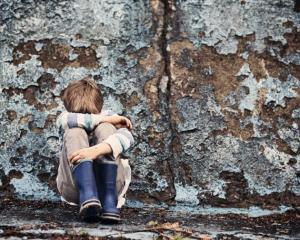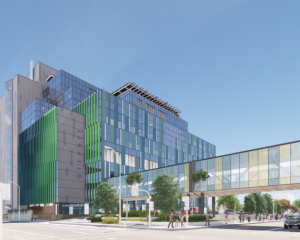The mass molestation of women on New Year's Eve in Cologne has rocked and shocked Germany.
The right-wing has seized on what happened with a "told you so'' vigour, while liberals have struggled to make sense of what must seem like a kick in the teeth.
Germany has been so generous in admitting 1.1million asylum seekers over the past year.
That is three times as many as the rest of Europe put together and makes New Zealand's contributions seem measly.
The sheer numbers pouring into Germany had prompted fears and divisive views before the New Year celebration outside the Cologne Railway Station.
Gangs of men harassed and robbed women, resulting in hundreds of complaints including two of rape.
Similar smaller incidents occurred in Stuttgart and Hamburg.
What has amplified the disquiet was the initial suppression of information about the background of the perpetrators.
Of the 31 arrested after Cologne, 18 were asylum seekers and all but five were Muslims.
Of course, it is dangerous to stereotype.
Of course, Germany - like everywhere else - will have no shortage of rapists and misogynists.
Of course, many asylum seekers will have come from horrific circumstances.
Of course, the numbers involved are tiny compared with the influx.
But women being groped by hundreds of men in public?
World View columnist Gwynne Dyer wrote last week about the Middle Eastern stereotype of loose Western women and that many young Muslim men, particularly from the countryside, would not yet understand that German women being free did not mean they were immoral or freely available.
He makes an excellent point.
Imagine, too, if all you knew about the West came from media and movies, feeding myths and misconceptions.
There will be different attitudes, different cultures.
It will be important, therefore, refugees and asylum seekers are taught about the West, in this case about different understandings of women's rights, that women are free to roam without harassment and to drink and to wear all sorts of clothing.
Most Middle Eastern societies are heavily patriarchal and a woman's place is severely restricted.
But refugees or asylum seekers must adapt when they come to live in places such as Germany or New Zealand.
This is not to say integration should cause loss of identity, a no-man's or no-woman's-land between cultures, with perhaps the worst of each.
That is likely lead to alienation and dislocation and all the trouble that brings.
Similarly, Westerners in the Middle East should change.
Women would be foolish and also disrespectful to walk the streets of Qatar or Cairo in the common attire of New York or Rome.
Just as refugees need to learn new ways from their hosts, so, too, can Western societies learn from the newcomers.
Perhaps traditions of Middle Eastern hospitality could benefit us all, as could more respect for family.
The cultures of New Zealand, for their part, cannot and should not be static.
Violence, macho behaviour and binge-drinking are among stark examples of matters that need to change.
This country is fortunate, in its isolation, not to be swamped by refugees.
There is a lot to be said for integrating smaller numbers who can receive better support and who are much less likely to fuel fear or resentment.
The settlement orientation at Mangere, too, is helpful with its inclusion of teaching about New Zealand ways.
It should also be remembered that being victims - refugees who have fled their homes and homelands - does not make people virtuous.
They, like everyone else, will comprise a range of people with a range of outlooks and attitudes.
What happened in Cologne is a salutary reminder the important and worthwhile task of welcoming and integrating refugees and asylum seekers is not easy for all concerned.












